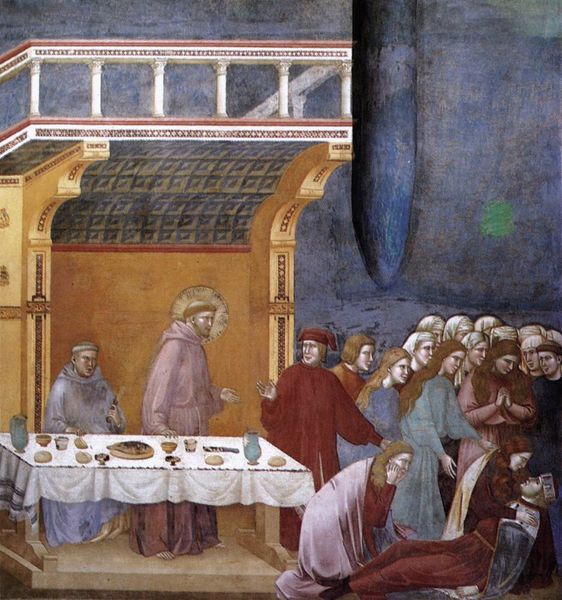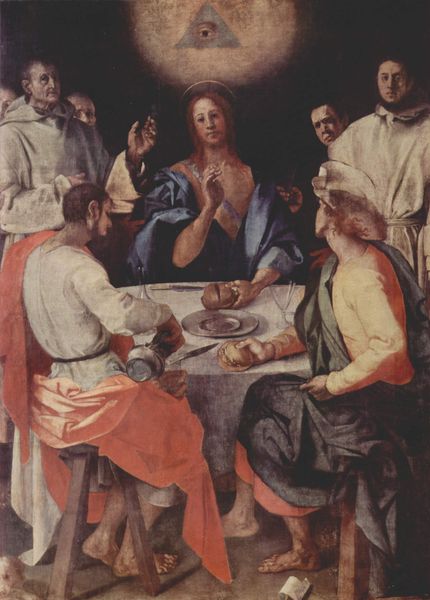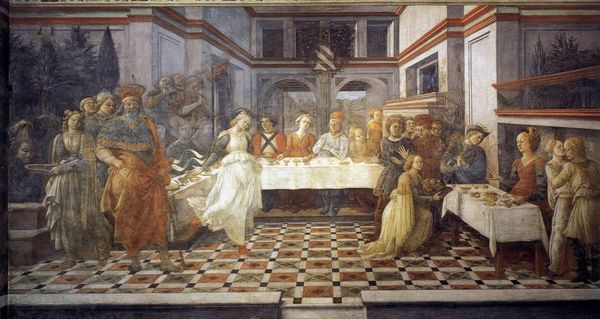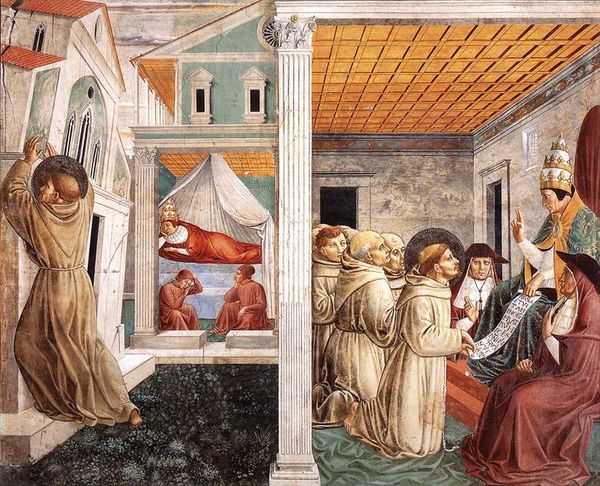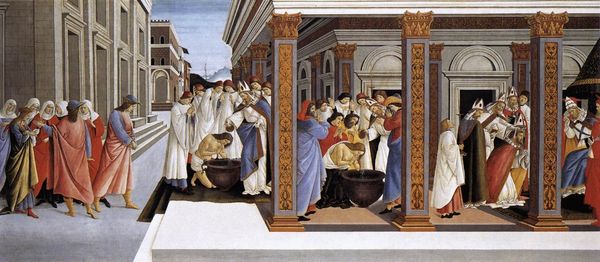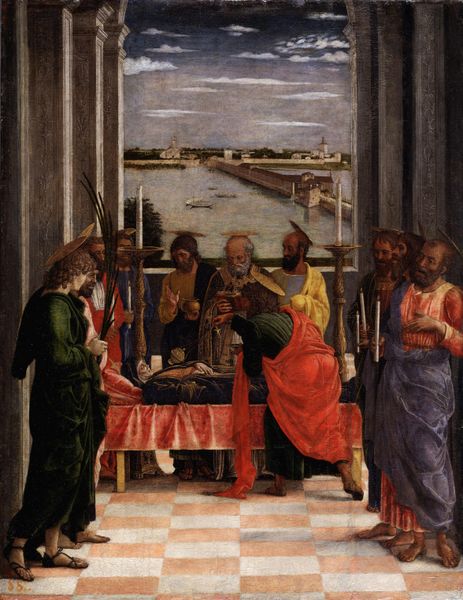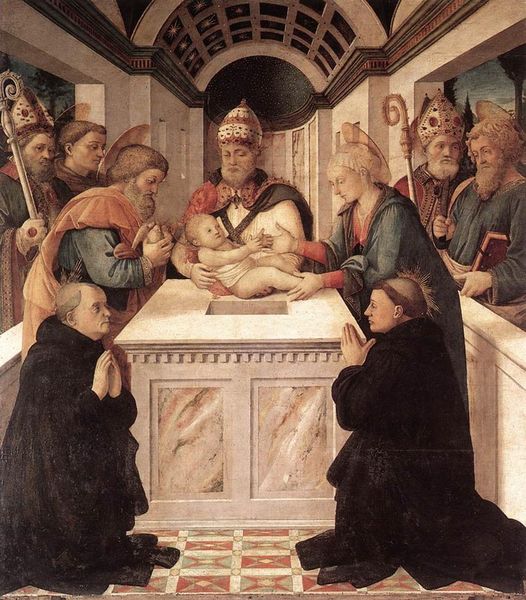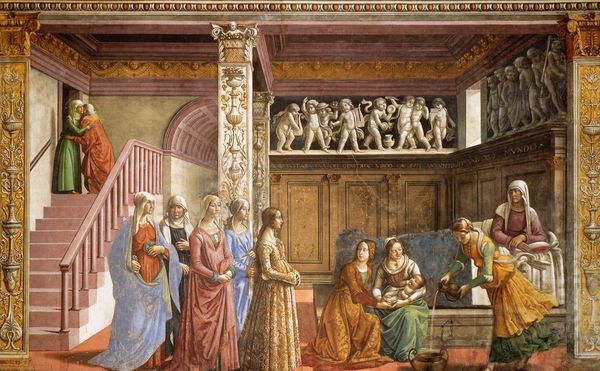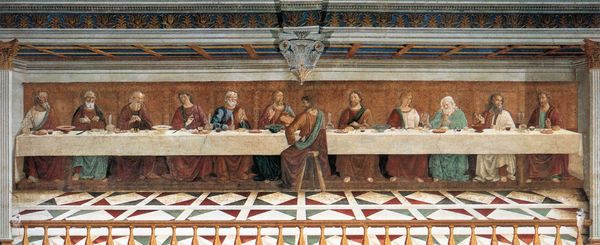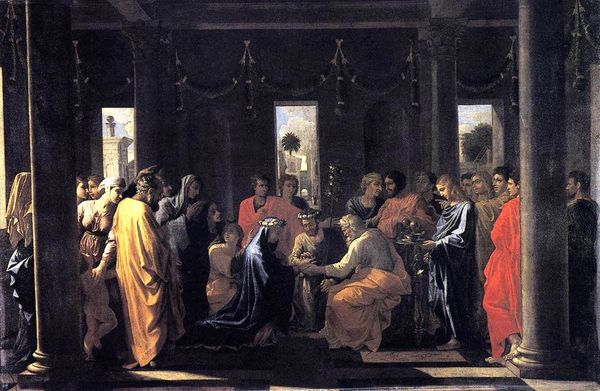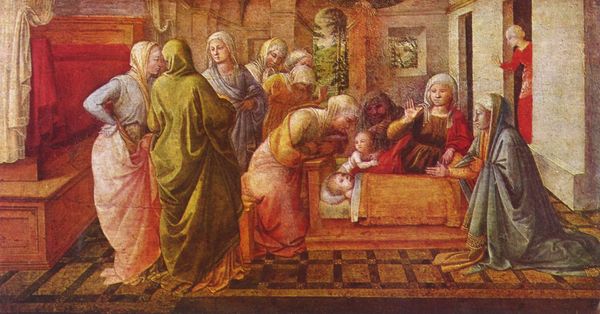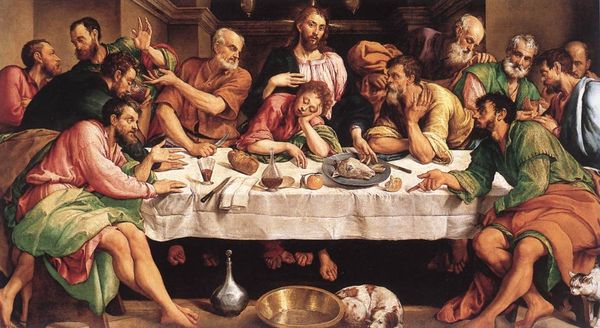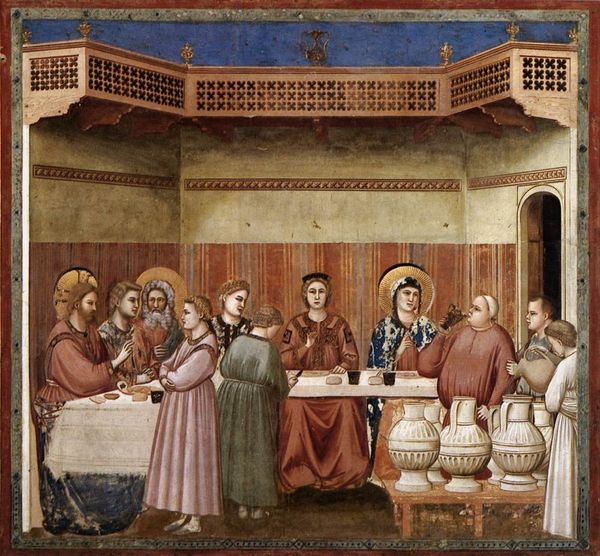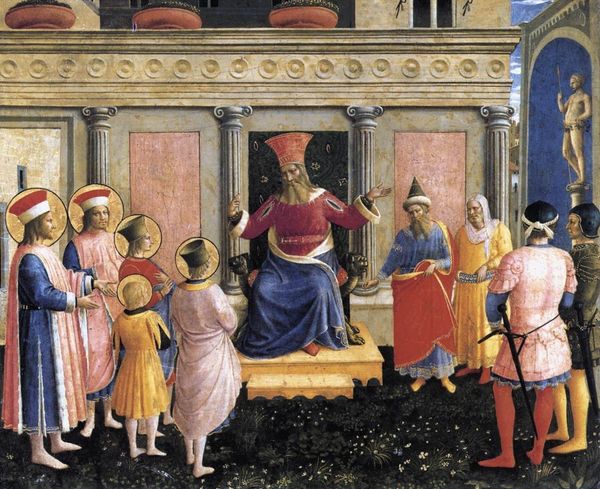
tempera, painting
#
portrait
#
narrative-art
#
tempera
#
painting
#
figuration
#
christianity
#
mythology
#
history-painting
#
italian-renaissance
#
christ
Dimensions: 23.8 x 34.3 cm
Copyright: Public domain
Benozzo Gozzoli painted ‘The Dance of Salome’ around 1461 with tempera on wood, a common method at the time. Tempera involves mixing pigment with egg yolk or other binding agents, demanding a precise, layered approach. The painting’s surface has a distinctive matte quality, typical of tempera, influencing how light reflects and interacts with the colors. The smooth finish allowed Gozzoli to add fine details, like the intricate patterns on the ceiling. In 15th-century Italy, tempera was the workhorse of panel painting; it required expertise and patience, often involving workshop collaboration to prepare the panels and mix the paints. Its widespread use demonstrates how artistic practice was deeply entwined with the skilled labor of artisans, a far cry from our modern notions of solitary genius. Paying attention to these elements of material and making helps us understand the cultural significance of the artwork and how it fits into the broader history of art.
Comments
No comments
Be the first to comment and join the conversation on the ultimate creative platform.
